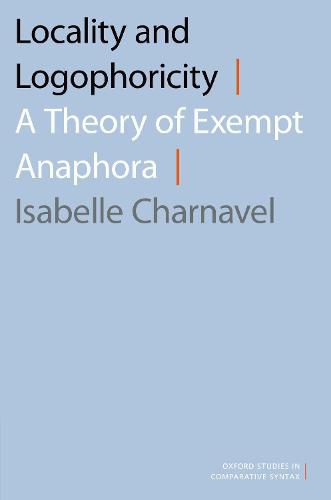Readings Newsletter
Become a Readings Member to make your shopping experience even easier.
Sign in or sign up for free!
You’re not far away from qualifying for FREE standard shipping within Australia
You’ve qualified for FREE standard shipping within Australia
The cart is loading…






Locality and Logophoricity investigates what the distribution of pronominal expressions in various languages can tell us about the structure of the human language faculty. The exploration of this question in the past fifty years has led to the development of a general theory of referential dependency, namely Binding Theory. This book focuses on Condition A of this theory, which concerns referentially dependent expressions such as English herself, French elle-meme or Mandarin ziji. Specifically, it tackles an issue of apparent ambiguity presented by many of these reflexives across languages: in a large number of unrelated languages, we observe that the same reflexive form must obey either syntactic constraints or discourse constraints related to perspective.
The specific aim of the book is to describe and explain this widespread dual behavior of reflexives. A detailed empirical investigation based mainly on systematically collected French, English, Icelandic, Mandarin, and Korean data leads the author to propose a unified solution to this issue. This proposal has consequences both for Binding Theory and for the theory of logophoricity, which addresses the impact of perspective on linguistic systems.
$9.00 standard shipping within Australia
FREE standard shipping within Australia for orders over $100.00
Express & International shipping calculated at checkout
Locality and Logophoricity investigates what the distribution of pronominal expressions in various languages can tell us about the structure of the human language faculty. The exploration of this question in the past fifty years has led to the development of a general theory of referential dependency, namely Binding Theory. This book focuses on Condition A of this theory, which concerns referentially dependent expressions such as English herself, French elle-meme or Mandarin ziji. Specifically, it tackles an issue of apparent ambiguity presented by many of these reflexives across languages: in a large number of unrelated languages, we observe that the same reflexive form must obey either syntactic constraints or discourse constraints related to perspective.
The specific aim of the book is to describe and explain this widespread dual behavior of reflexives. A detailed empirical investigation based mainly on systematically collected French, English, Icelandic, Mandarin, and Korean data leads the author to propose a unified solution to this issue. This proposal has consequences both for Binding Theory and for the theory of logophoricity, which addresses the impact of perspective on linguistic systems.